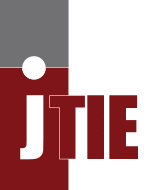Journal of Technology and Information Education, 2023 (vol. 15), issue 1
USING ARTIFICIAL INTELLIGENCE IN EDUCATION 4.0
József UDVAROS, Norbert FORMAN
Journal of Technology and Information Education 2023, 15(1):1-19 | DOI: 10.5507/jtie.2023.004 
Education 4.0 is a new educational paradigm that aims to address the needs and opportunities of Industry 4.0. The paradigm allows students to determine their own model and pace of learning. Education 4.0 is based on the concept of learning by doing, in which students are encouraged to learn and discover different things in an experimental, unique way. Despite the fact that the possibilities offered by Education 4.0 excite the imagination of more and more people, the level of implementation and support is still in the very early stages, although in some parts of the world we can already find smaller and larger attempts, but these are still mostly running...
EVALUATION OF THE EDUCATIONAL PROGRAM SMALL TECHNICAL UNIVERSITY
Pavel DOSTÁL, Svatopluk SLOVÁK, Radim ŠTĚPÁNEK, Veronika ŠVRČINOVÁ
Journal of Technology and Information Education 2023, 15(1):20-35 | DOI: 10.5507/jtie.2023.001 
The article presents the results of the evaluation of the educational program Small Technical University (hereinafter STU). The STU educational program is primarily intended for kindergartens. Its aim is to lead children to a positive relationship with technique, to develop technical literacy and logical thinking. Since 2014, the STU program has already intervened with more than 200,000 kindergarten pupils (Malá technika, 2022). The authors of the article dealt with the question of whether it really has the benefit that is expected from it. The main used methods were a natural pedagogical experiment and a questionnaire survey. The results of the performed...
ELECTRICAL TEACHERS AND THEIR DIGITAL COMPETENCES IN RELATION TO TEACHING
Čestmír SERAFÍN
Journal of Technology and Information Education 2023, 15(1):36-51 | DOI: 10.5507/jtie.2023.005 
The didactic process is a complex process influenced by many circumstances, both external and internal, and this is of course no different in the didactics and teaching process of electrical engineering. However, with the increasing digitalization of education, this process is changing significantly. Digital technologies enable more efficient and effective learning by providing learners with access to a wide range of resources such as online lectures, videos and simulations, as well as tools such as various software tools, virtual laboratories, etc. Thus, the didactic process in electrical engineering is changing significantly and it is necessary to...
THE BENEFITS OF DIGITALIZATION OF THE SELECTED PROCESS AT THE UNIVERSITY FROM THE PERSPECTIVE OF THEIR STAKEHOLDERS
Milan KLEMENT
Journal of Technology and Information Education 2023, 15(1):52-63 | DOI: 10.5507/jtie.2023.003 
The digitalization of document circulation and processing, including the creation of electronic approval workflows, is a challenge for increasing the efficiency of processes at all levels of modern society. For this reason, we have developed and piloted a flexible electronic workflow for the digitalization of a selected process and tested it in real operation conditions, including the implementation of qualitative research. The results show the usefulness and adaptability of the proposed electronic workflow from the perspective of its users. Based on the results, we recommend further studies to improve and test the model more thoroughly. Moreover,...
EXAMPLE OF GOOD PRACTICE FOR SUPPORTING STEAM IN TECHNICAL SUBJECTS LEARNING
Tomáš SOSNA, Andrea ŠOPOROVÁ CHOCHOĽAKOVÁ
Journal of Technology and Information Education 2023, 15(1):64-77 | DOI: 10.5507/jtie.2023.002 
The article is focused on an example of the application of STEAM education in technical education in the Czech Republic and Slovakia. The trend and need for STEAM education is worldwide. The given example can also be taken over to other levels of education or technical interest activities. Above all, the possibilities of connecting technical education in the Czech Republic and Slovakia with the STEAM concept are discussed here.
PRE-SERVICE TEACHERS AS CURICULLUM DESIGNERS: THE CASE OF BEBRAS TASKS
Jan PRŠALA
Journal of Technology and Information Education 2023, 15(1):78-94 | DOI: 10.5507/jtie.2023.006 
The contest Beaver of Informatics is the first contact with informatics and informatics topics like algorithms, programming, or modeling for many pupils. It's important for tasks in this contest to be correct and representative. Students of Faculty of Education at University of South Bohemia, pre-service teachers, are tasked with preparing tasks for this contest. They are given these tasks in English and are supposed to translate them and prepare them for the contest. The aim of this research is to analyze these tasks and to find what errors pre-service teachers do. We found out that the biggest problems are putting grammatically correct sentence together....

